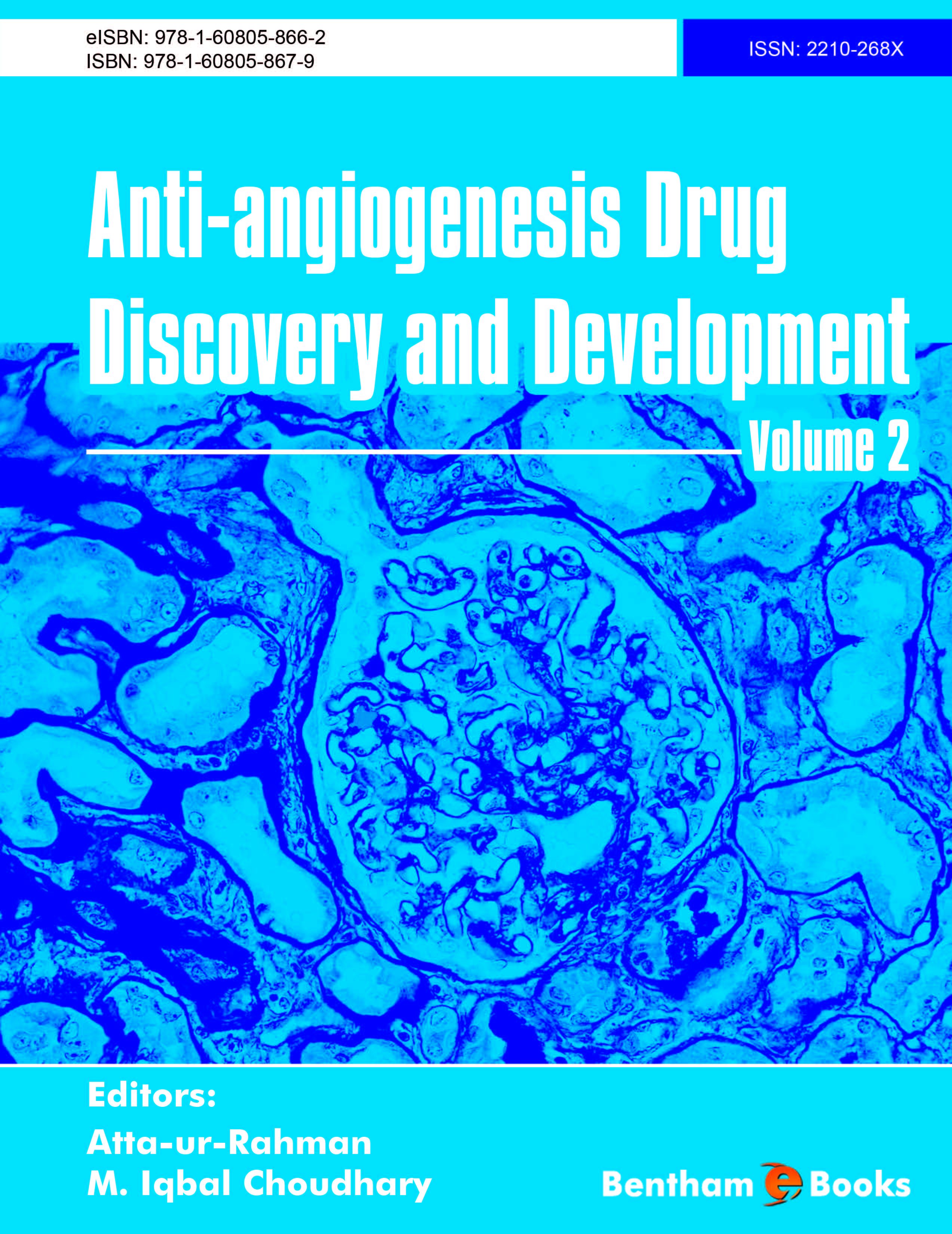Preface
Angiogenesis is one of the most important processes in the life cycles of higher
animals, both in normal physiology, and in pathophysiology. The growth of new
blood vessels modulates many processes including reproduction and development
of cells, wound heating, etc. The molecular cascade of angiogenesis is tightly
regulated by inhibitors and stimulators. Upregulation and disruption of angiogenic
factors play key roles in the tumor growth and metastasis. Angiogenesis is also a
key actor in cancer and other diseases. The discovery of angiogenic inhibitors is a
promising approach for the treatment of various diseases, including cancers. The
modern research in this area takes benefit of the understanding of angiogenisis at
the molecular level. Key targets has been identified, and a large number of small
molecular inhibitors have been discovered, which influence the angiogenic
pathway in a very subtle manner. The developments in this field are fast and
exciting, and deserve attention of both the drug discovery scientists, and the
general public.
Volume 2 of this ebook series entitled, “Anti-angiogenesis Drug Discovery and
Development”, is an outstanding collection of well written articles in this
important field. The first volume of this series was greatly appreciated by the
readers. The second volume is a continuation of the some high quality
compilation of focused articles.
The first review by Parida and Mandal focuses on defining the complex mechanism
of angiogenesis, and the recent advances in therapeutics which target the process at
various points. These drugs and drugs candidates interact with various targets in the
angiogenic cascade, and generate considerable disease response.
Akita in his review describes various in vitro assays / bioassays, used in the
discovery of anti-angiogenic agents. These range from culturing techniques to
capillary tube degradation and cell migration. The objective is to punitively assess
the anti-angiogenic effects of drug candidates.
Hilmi and Pagès have reviewed various targets in angiogenesis in clear cell renal
carcinoma (CCRCC). CCRCC is widely used for the study of the implications of
angiogenesis in cancer. This has been taken as a model to understand the process
of angiogenesis at molecular and cellular levels as well as to understand which of
these targets can yield optimal therapeutic response. The success and failure of
various antiagiogenic agents in clinical practices has also been reviewed.
Oxidative stress plays an important role in the on-set of many diseases. In cancer
progression, oxidative stress is the primary cause of the up-regulation of several
pro-angiogenic factors. Philips et al have contributed an excellent review on the
role of antioxidants, both single molecules as well as plant extracts, and their
combination, as supplement regimen to inhibit the invasiveness of several cancers.
Gude et al have reviewed studies on novel anti-cancer strategies, based on striking
the balance between pro-angiogenic and anti-angiogenic molecules. They have
also summarized various molecules of both synthetic and natural origins which
inhibit the process of angiogenesis and can be used for the treatment of cancers.
Ovarian cancer is among the most lethal malignancies. Currently the available
drugs are less than adequate for its treatment. The discovery of new antiangiogenics
can open the way for better treatment, and improve overall survival in
ovarian cancer. Maile at al has attributed an excellent review on this topic.
Mc Murray and Klostergaard present a well referenced review on STAT3 (Signal
Transducer and activator of Transcription 3) and its role in angiogenesis. STAT3
signaling activation has been identified as a valid target for drug discovery.
Inhibition of STAT3 activation is achieved by inhibiting the interaction between
the tumor cells and stromal compartment. The review summarizes decades of
research work on small molecule-mediated inhibition of STAT3.
Katsi has written an excellent treatise on another aspect of angiogenesis, related to
cardiovascular diseases such as an atherosclerosis. Historical prospects and details
of the latest developments of angiogenesis therapies for cardiovascular diseases
are reviewed.
This volume is the result of hard work of so many eminent contributors, for
which we express our profound gratitude. We also like to acknowledge the
commitment and untiring efforts of the outstanding team of the Bentham Science
Publishers, led by Mr. Mahmood Alam, Director Bentham Science Publishers.
The efforts of Ms. Sara Yasir, Manager Publications, deserve special appreciation.
Atta-ur-Rahman, FRS
Kings College
University of Cambridge
Cambridge
UK

